
Initiation and Brief Overview
The department of Political Science offers an undergraduate three years Honours Course and Generic Electives to other Honours Courses at the B.A. level. The department was established in the year 1962 with two full-time teachers. Later, another two full-time teachers were recruited to increase faculty strength of the department.
The core emphasis of the department is on familiarizing students with the conceptual and applied essence of the discipline. The course offers a set of skills which are an excellent preparation for a wide range of careers in academics, research, civil services and other competitive examinations, non-government organizations and private sectors. Currently, the department has four permanent faculty members, all scholars with a sharp academic bent of mind. They are involved in research and have several individual publications and presentations nationally and internationally.
Vision and outlook
The discipline of Political Science requires students to understand politics in all its nuances, to probe power relationships which exist in human interaction and examine fundamental principles of democratic functioning that guide ideas and institutions.
Methods of teaching
Apart from classroom lectures or the chalk and talk method, the Department uses ICT based classes and audio-visual aids, such as films and Powerpoint presentations, to stimulate learning interests. Members of faculty use innovative teaching methods to make learning experimental. This involves the use of micro-teaching, debates and quiz. Series of public lectures and workshops designed around the course are also used by teachers to provide extensive knowledge to the students. The department recognises the need for making project work as an academic requirement for all courses. Students undertake projects on all papers under the supervision of the concerned faculty. These projects are undertaken in various formats including group work as well as individual presentations. Field visits and study trips aid to the teaching-learning process. Regular assessments through written classwork and class-tests and end of the semester mock-tests ensure that the students are well prepared for their final end-semester examinations.
Infrastructure:
The Department maintains a Seminar Library consisting of relevant books and materials of reference that are not part of or available in the College Library. A laptop and a camera are part of the Departmental assets and are used for enhancing teaching-learning and for documenting and recording special events.
Email:
politicalscience@rksmvv.ac.in
NEP Syllabus
https://wbsu.ac.in/web/wp-content/uploads/2024/01/Political-Science_SEM-1-2_2023.pdf
CBCS Syllabus
https://wbsu.ac.in/web/Syllabus/UG%20Syllabus/political-science-honours-cbcs-draft-syllabus.pdf
CBCS
Programme Outcomes:
A graduate student in arts/social sciences/humanities shall be
PO1: Communication Skills : Confident to speak, write, read, listen and understand the English language and one or more Indian languages. Relate the ideas, knowledge, books, and people. Think and decide rationally, and adopt technology and electronic/print media in disseminating thoughts, facts and realities.
PO2: Social responsibility: Develop an obligation to act for the benefit of society at large. Cultivate the responsibility to maintain a balance between the economy and the ecosystems. Nurture a moral obligation to minimize the adverse effect on those immediately around them.
PO3: Critical, logical and rational thinking: Acquire the ability for objective, rational, skeptical, logical, and unbiased analysis of factual evidences to form a judgment or conclusion. Enhance the process of rational thinking, problem solving and analytical evaluation from different perspectives.
PO4: Enlightened and effective Citizenship: Cultivate progressive citizenship for a knowledge society for peace and prosperity of nations and the world. Develop clear, rational and progressive thinking. Participate in decision-making concerning the society and upholding national development, integrity, unity and fraternity.
PO5: Values and Ethics: Recognize the importance, worth and usefulness of principles and standards of behavior and moral dimensions of one’s own decisions and judgements. Be aware of various aspects of social responsibility through social, outreach, and cultural activities during the programme. Shape a personality which understands and appreciates religious and cultural diversity and plurality.
PO6: Sustainable development: Understand, organize and promote the principle of human development goals by sustaining the ability of natural systems, natural resources and ecosystem services upon which the economy and society depends.
PO7: Life-long process of Learning: Cultivate the proficiency to engage in independent, life-long and progressive learning abilities in the broadest context of changing sociopolitical-economic-cultural and technological scenario.
PO8: Employment Skills: Be prepared for employment in various fields by developing reading, writing and comprehension skills which make the students fit and eligible for jobs in the government and non-government sectors. A broad-spectrum study of various subjects helps the students compete in various examinations for employment after graduation.
Programme Specific Outcome
PSO1: Understanding the nature and developments in national and international politics.
PSO2: Developing overall awareness about national political, history, international relations, past and present Indian and Western political thinkers.
PSO: 3 Analysing the Indian Constitutional provisions, major legislations and reforms.
PSO:4 Building knowledge of administrative studies with specific reference to Indian administrative and governance structures and politics.
PSO:5 Evaluate the political, economic and social variables for a proper understanding of the plurality of Indian society.
PSO:6 Encourage a comparative understanding of specific world constitutions in a comprehensive manner.
PSO: 7Develop awareness of social issues, political rights, ethical problems and develop values and responsibilities towards others and self.
Course Outcome
| Semester-1 |
Course Outcome |
| PLSACOR01T
CC-1 Understanding Political Theory
|
• This course introduces the students to the idea of political theory, its history and approaches, and an assessment of its critical and contemporary trends and is designed to reconcile political theory and practice through reflections on the ideas and practices related to democracy.
• Learners would be able to describe and comprehend various key concepts related to the discipline and develop their own understanding of politics. |
| PLSACOR02T-
CC-2 Constitutional Government and Democracy in India
|
• This course acquaints students with the constitutional design of Indian state structures and institutions, and their actual working overtime. |
| Semester 2 | Course Outcome |
| PLSACOR03T-
CC 3 Political Theory-Concepts and Debates |
• This course will familiarize students with the basic normative concepts in political theory and encourage them to understand how they manifest in social practices.
• The course will also help students learn how we make use of these concepts in organizing our social living. |
|
PLSACOR04T- CC-4 Political Process in India
|
• This course equips students with the tools of studying the political process in India by looking at the relationship between the components of the political system, the social and economic contexts in which they unfold, and the democratic values that they seek to achieve. |
| Semester 3 | Course Outcome |
| PLSACOR05T-
CC-5 Introduction to Comparative Government and Politics |
• This course aims to familiarise students to basic concepts, methods and scope of comparative politics, different approaches their strengths and weaknesses.
• The objective is to provide deeper understanding of structures and functions of institutions in comparative perspective. |
| PLSACOR06T-
CC6 – Perspectives on Public Administration |
• The course introduces the discipline of public administration. This paper encompasses public administration in its historical context with an emphasis on the various classical and contemporary administrative theories.
• The students will be better equipped to analyse processes of leadership and conflict management that have become increasingly significant in contemporary administration. |
| PLSACOR07T
CC-7 Perspectives on International Relations and World History |
• This paper seeks to equip students with the basic intellectual tools for understanding International Relations.
• It introduces students to some of the most important theoretical approaches for studying international relations.
|
| Semester 4 | Course Outcome |
| PLSACOR08T
CC 8 Political Processes and Institutions in Comparative Perspective |
• In this course students will be trained in the application of comparative methods to the study of politics.
• The paper will equip students with an in-depth understanding of different political systems and regime types. Students would be able to contrast unitary and federal, democratic and authoritarian systems. |
| PLSACOR09T
CC–9 Public Policy and Administration in India |
The paper seeks to introduce the interface between public policy and administration in India. The essence of public policy lies in its effectiveness in translating the governing philosophy into programs and policies and making it a part of the community living. It deals with issues of decentralization, financial management, citizens and administration and social welfare from a non-western perspective. |
| PLSACOR10T –
CC-10 Global Politics |
• This course introduces students to the key debates on the meaning and nature of globalization by addressing its political, economic, social, cultural and technological dimensions.
• The course also offers insights into key contemporary global issues such as the proliferation of nuclear weapons, ecological issues, international terrorism, and human security before concluding with a debate on the phenomenon of global governance. |
| Semester-5 | Course Outcome |
| PLSACOR11T –
CC-11 Classical Political Philosophy |
• This course goes back to Greek antiquity and familiarizes the students with the manner in which the political questions were first posed and are being answered in normative ways.
• The aim is to introduce to the students the questions, ideas and values of political philosophy, which were being addressed by the classical political philosophers. |
| PLSACOR12T –
CC-12 Indian Political Thought – I |
• The primary objective of the course is to make students familiar with the works and studies related to Indian Political Thought.
• This course introduces the specific elements and diverse spectrum of Indian Political Thought spanning over two millennia. The basic focus of study is on individual thinkers whose ideas are however framed by specific themes and facilitated sociopolitical transformation. |
| . PLSADSE01T
DSE-1 Reading Gandhi |
• This course will enable student to understand Gandhi in a global framework and elaborate Gandhian thought and examine its practical implications. |
| . PLSADSE02T
DSE-2 Women, Power and Politics |
· Understand the concept of patriarchy, feminism, family, community and state. Understand the history of women’s movement and why these movements emerged, and hence would be able to connect theory and practice. |
| PLSADSE03T
DSE-3 Understanding Global Politics |
· This course enables the students to learn about the meaning, nature, significance and contemporary debates about globalization and the role played by various international organizations will expand students’ knowledge on international political economy. |
| PLSADSE04T
DSE-4 Public Policy in India |
· The student is introduced to the range of ideologies that influence the policy-making process. The student learns how to relate public policies to politics.
· The student learns how to relate public policies to the political economy. The student is able to have a grasp of the role of social movements and interest groups in the making of public policy. |
| Semester 6 | Course Outcome |
| PLSACOR13T
CC-13 Modern Political Philosophy |
This course aims to introduce the students the philosophers from philosophies and traditions of thought. |
| PLSACOR14T
CC-14 Indian Political Thought – II |
• The objective of this course is to study important themes through individual thinkers.
• The course has been designed to give students a glimpse about the richness and diversity within Indian political thought. |
| PLSADSE05T
DSE-5 Human Rights in a Comparative Perspective |
• Students will be able to understand the issues concerning rights of all citizens as well as marginalized groups.
• Students will be equipped to understand, theoretically and conceptually, socio-economic and political problems of marginalized groups in society. • Students will understand basic concepts relating to social inequality such as caste, gender, ethnicity etc. • An in-depth study of Human Rights, UN Declaration on Human Rights and Citizenship Rights |
| PLSADSE06T
DSE-6 Governance: Issues and Challenges |
• The students will learn the concept of good governance and green governance.
• This course will help students to get familiar with the changing nature of governance in the era of globalization. |
After completion of the course students will be able to:
| Cos | Knowledge level
Bloom’s Taxonomy |
PSOs mapping | |
| CO1 | This course introduces the students to the idea of political theory, its history and approaches, and an assessment of its critical and contemporary trends and is designed to reconcile political theory and practice through reflections on the ideas and practices related to democracy.
Learners would be able to describe, comprehend, understand and will be able to explain the various key concepts related to the discipline and develop their own understanding of politics. |
Understand, Identify, Compare, Explain, Outline | 1,2 |
| CO2 | This course acquaints students with the Indian constitutional design of state structures and institutions, and their actual working overtime. | Understand, know, acquire, assess, compare | 1,3,5 |
| CO3 | This course will help students know the basic normative concepts in political theory and encourage them to understand how they manifest in social practices.
The course will also help students understand how we make use of these concepts in organizing our social living and compare how these values and concepts enrich the discourses of political life, sharpening their analytical skills in the process. |
Know, understand, Explain, compare, relate | 1,2,7 |
| CO4 | An understanding of the political process in India calls for a mode of analysis, which takes into consideration social and economic relations in society, and the manner in which they impact upon and are shaped by the institutional frameworks of politics.
This course illustrates students with the tools of studying the political process in India by looking at the relationship between the components of the political system, the social and economic contexts in which they unfold, and the democratic values that they seek to achieve. |
Know, understand, identify, relate, compare | 1,2,3,4 |
| CO5 | This course aims to familiarise students to basic concepts, methods and scope of comparative politics, different approaches their strengths and weaknesses.
The objective is to provide deeper understanding of structures and functions of institutions in comparative perspective. The course will explain politics in a historical framework while engaging with various themes of comparative analysis in developed and developing countries. |
Know, explain, classify, identify | 1,2,6 |
| CO6 | The course introduces the discipline of public administration. This paper encompasses public administration in its historical context, emphasizing the various classical and contemporary administrative theories.
The course also explores some of the recent trends, including feminism and ecological conservation and how the call for greater democratization is restructuring public administration. |
Know, identify, classify, elaborate | 1,2,4 |
| CO7 | This paper seeks to equip students with the basic intellectual tools for understanding International Relations.
Major theoretical perspectives will broaden the critical insight and inculcate among students the significance and rigour of the study of international relations. |
Know, understand, | 1,2,7 |
| CO8 | In this course students will be trained in the application of comparative methods to the study of politics.
The course is comparative in both what we study and how we study. In the process the course aims to introduce undergraduate students to some of the range of issues, literature, and methods that cover comparative politics. |
Know, understand, explain, summarise | 1,2, 6 |
| CO9 | The paper seeks to introduce, explain and formulate the interface between public policy and administration in India. The essence of public policy lies in its effectiveness in translating the governing philosophy into programs and policies and making it a part of the community living. | Know, compare understand, explain, formulate | 1, 3,4,5 |
| CO10 | • This course introduces students to the key debates on the meaning and nature of globalization by addressing its political, economic, social, cultural and technological dimensions. | Know, understand, list | 1,2,7 |
| CO11 | • This course goes back to Greek antiquity and familiarizes the students with the manner in which the political questions were first posed and are being answered in normative ways. | Know, understand | 1,2 |
| CO12 | • The primary objective of the course is to make students familiar with the works and studies related to Indian Political Thought. | Know, understand | 2,7 |
| CO13 | • By introducing the philosophers from different traditions students will be able to answer few fundamental political questions: Why do we live in political communities? What is the ‘best’ form of government? How human nature influences political decision making? How and in what circumstances we need to resist bad rulers? | Know, understand, comprehend, analyse | 1,2,7 |
| CO14 | • The objective of this course is to study important themes through individual thinkers.
• The course has been designed to give students a glimpse about the richness and diversity within Indian political thought. |
Know, understand, comprehend | 1,2,7 |
| CODSE1 | • This course will enable student to understand Gandhi in a global framework and elaborate Gandhian thought and examine its practical implications.
• Students analyze Gandhi’s continuing influence in the contemporary times and critically evaluate his legacy. |
Know, understand, describe, construct, analyse | 1,2,5,7 |
| CODSE3 | • This course enables the students to learn about the meaning, nature, significance and contemporary debates about globalization. | Know, understand, explain | 1,2,6,7 |
| CODSE5 | • Students will be able to understand the issues concerning rights of all citizens as well as marginalized groups.
• Students will be equipped to understand, theoretically and conceptually, socio-economic and political problems of marginalized groups in society. |
Know, understand, discuss | 1,2,6,7 |
| CODSE6 | • The students will learn the concept of good governance.
• This course will help students to get familiar with the changing nature of governance in the era of globalization. |
Know, understand | 1,2,3,4,7 |
NEP
Course Outcome
| Semester -1 | Course Outcome. |
| Major/DS-1
PLSDSC101T Political Theory: Concepts
|
This course is designed to develop a sound understanding of Political Science with the different meanings of politics and how it is interpreted differently by diverse ideological
positions
|
| Semester 2 | Course Outcome |
| Major /DS 2
PLSDSC102T Indian Constitution and Government
|
The objective of the course is to familiarize the students with the key elements of the Constitution of India and enable them to critically assess the working of government institutions in the broader framework of constitutionality and factors and forces which attempt to influence them. |
After completion of the course students will be able to:
| COS | Knowledge level
Bloom’s Taxonomy |
PSOs mapping | |
| CO 1 | This course is designed to develop a sound understanding of Political Science with the different meanings of politics and how it is interpreted differently by diverse ideological positions.
|
Understand, define, analyse | 1, 2,3 |
| CO 2 | This course has the objective of enhancing the skill of students in legal matters by introducing them to the legal system in India, the institutions attached with jurisprudence, and the crucial laws that govern their public and personal lives. | Identify, understand, explain | 1, 2,3 |
| CO 3 | The objective of the course is to familiarize the students with the key elements of the Constitution of India and enable them to critically assess the working of government institutions in the broader framework of constitutionality and factors and forces which attempt to influence them. | Understand, comprehend, assess, analyse | 1, 2,3 |
PO, CO Matrix:
| PO1 | PO2 | PO3 | PO4 | PO5 | PO6 | PO7 | PO8 | |
| CO1 | ||||||||
| CO2 | ||||||||
| CO3 | ||||||||
| CO4 | ||||||||
| CO5 | ||||||||
| CO6 | ||||||||
| CO7 | ||||||||
| CO8 | ||||||||
| CO9 | ||||||||
| CO10 | ||||||||
| CO11 | ||||||||
| CO12 | ||||||||
| CO13 | ||||||||
| CO14 | ||||||||
| CODSE1 | ||||||||
| CODSE3 | ||||||||
| CODSE5 | ||||||||
| CODSE6 |
NEP
| PLSDSC101T | ||||||||
| PLSDSC102T |
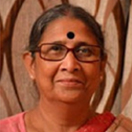
Associate Professor
View Profile
Assistant Professor
View Profile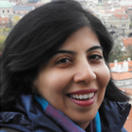
Assistant Professor
View Profile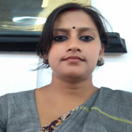
Assistant Professor
View Profile| ACADEMIC CALENDAR | Download |
| AC 2023 | View |
| Departmental Routine | Download |
| Routine | View |
| Lesson Plan | Download |
| CBCS Integrated Lesson Plan 2018-2023 (1) | View |
| NEP DSC1 2023 | View |
| NEP LESSON PLAN 2023 | View |
| Political Science Minor LESSON PLAN | View |
| Study Material | Download |
| Study material of Sem 4 – Concept Political Culture | View |
| Study material of Sem 6 (Gramsci on Civil Society) | View |
| Study Material, Sem 5, CC11, Hobbes and Locke – Comparative Analysis of Social Contract Theory | View |
| Study Material, Sem 5, DSE 1- Gandhi’s Critique of Industrialization | View |
| Semester 4 GE4 | View |
| Semester 6 | View |
| Adivasi And Land Question | View |
| The “Great Debates” in international relations theory | View |
| CONTINIOUS EVALUATIONS | Download |
| CONTINIOUS EVALUATIONS | View |
EXTENSION LECTURES, DEPARTMENT OF POLITICAL SCIENCE
| SERIAL NO. | DATE | NAME AND DESIGNATION OF VISITING LECTURER | TOPIC |
| 1 | 7th February, 2017 | Smt. Ubhoybarati Acharya, Assistant Professor in Political Science, Women’s College, Kolkata.
|
Women’s Equality and Constitution of India |
| 2 | 7th February, 2017 | Dr. Alefiya Tundawala, Savitri Girls’ College | Electoral Politics in India: Issues and Trends |
| 3 | 31st August 2017 | Dr. Arundhati Bhattacharyya, Diamond Harbour Women’s University
|
Women in Public Administration |
| 4 | 22nd March 2018 | Smt. Ubhoybarati Acharya, Assistant Professor in Political Science, Women’s College, Kolkata. | David Held: Classification of Democracy. |
| 5 | 31st August 2018 | Dr. Arundhati Bhattachaya, Diamond Harbour Women’s University. | Women in Public Administration |
| 30th March, 2019 | Moumita De , Lecturer, Department of Human Rights, RKSMVV
|
Basic Concepts of Human Rights | |
| 6 | 28th August 2019 | Dr. Aparna Bandyopadhyay, Associate Professor in History, Diamond Harbour Women’s university | The reality of westphalia and its implications |
| 7 | 27th August 2019 | Dr. Soma Ghosh,Principal, Hiralal Mazumdar Memorial College for Women | New Public Management |
| 8 | 20th March 2019 | Inter-departmental lecture with the department of History. Speaker: Prof.Sobhanlal datta gupta ,ex-surendranath Banerjee Professor in Political Science, University of Calcutta | The trajectory of Left Politics in India. |
| 9 | 14th February 2019 | Inter-departmental lecture with the department of Sociology: Speaker: Prof.Prasanta Ray, EmeritusProessor of Political Science and Sociology, Presidency University. | Power and its Guises |
| 10 | 29th june 2020 | Sri Amitava Deb,Assistant Professor in Political Science,Derozio Memorial College, Rajarhat | Federalism: The case of the USA and India. |
| 11 | 15th june 2020 | Dr Roopleena, BanerjeeAssistant Professor in Political Science and vice principal, Dr. Ambedkar Satabarshiki Mahavidyalaya. Helencha | Federation and confederation: The case of Canada |
| 12 | 4th January, 2021 | Multidisciplinary Online Lecture Series on Gender Studies, Dr. Trina Nileena Banerjee, Researcher | Gender and Political Science: The Question of Women in Collective Struggle |
| 13 | 24th june 2021 | Webinar Series : Day 1: Kinshuk Nandi,Assistant Professor in Political Science, Taki Govt College.
|
Torture in USA and India |
| 14 | 29th June 2021 | Webinar Series : Day 2: Kinshuk Nandi,Assistant Professor in Political Science, Taki Govt College.
|
Terrorism and Insecurity of Minorities: USA and India |
| 15 | 8th July,
2021 |
Webinar Series Day 3: Moumita De, Lecturer, Department of Human Rights, RKSMVV | Caste and Race in India |
| 16 | 23rd July 2021 | Alefiya Tundawala, Assistant Professor in Political Science, Savitri Girl’ s College, Kolkata. | Green Governance and Sustainable Human Development |
| 17 | 14th January 2022 | Prof Roopleena Banerjee,Asst Professor, Department of Political Science, Vice Principal, B.R Ambedkar Satabarshiki Mahabidyalaya , Helencha | Kabir and Syncretism and Bhakti and Sufi Movement |
| 18 | 13th December 2022 | Dr. Panchali Majumdar, Associate Professor, Department of History
RKSMVV |
World War II: Causes and Consequences |
| 19 | 13th December 2022 | Dr. Sunetra Mitra, Assistant Professor, Department of History, RKSMVV | World War I: Causes and Consequences |
| 20 | 06th January,2023 | Dr. Roopleena Banerjee, Assistant Professor in Political Science and vice principal, Dr. Ambedkar Satabarshiki Mahavidyalaya, Helencha | Brahmanic, Shramanic and Syncretism |
| 21 | 24th February, 2023 | Kinshuk Nandi,Assistant Professor in Political Science, Taki Govt College.
|
Adivasis/Aboriginals and the Land question: India and Australia |
| 22 | 28th November 2023 |
Soumyajit Raha Advocate * Special Public Prosecutor, Government of West Bengal * Special Public Prosecutor, C.I.D. West Bengal * Special Public Prosecutor, Cyber Crime, Bidhannagar City Police |
Legal System |
Conferences / Seminars
| 1 | 7th April, 2017 | Inter-disciplinary Seminar on Women’s Journey Towards Empowerment: A Myth or A Reality? organised by the Departments of Political Science, Philosophy and Education | Convenor, Dr. Payal Bose Biswas, Assistant Professor, Department of Political science, RKSMVV |
| 2 | 13th September, 2017 | Inter-disciplinary Seminar on Socio-Economic Stratification in Contemporary India organised by the Departments of Political Science and Economics | Prof. Amartya Mukhopadhyay, Ex- Professor, Department of Political science, University of Calcutta |
| 3 | 7th February, 2020 | Interdicsiplinary Seminar to Commemmorate 200th Birth Anniversary of Pandit Ishwarchandra Vidyasagar, organised by the Departments of History, Bengali, Political Science and Education. | Dr. Sabita Choudhuri, Associate Professor, Department of Political Science, RKSMVV |
| Event Reports | Download |
| Event Reports Political Science | View |
Formulation of Departmental Policy for Slow and Advanced Learners September 4th, 2019
In keeping with the policy of the Slow and Advanced Learners of the College, the department of Political Science has formulated certain specific guidelines to identify the Slow and Advanced Learners of the discipline.
This identification of slow and advanced learners is done from class response/performance of respective students within one month from the commencement of their classes.
Assessment of student quality is made by teachers in individual capacity in terms of the following:
So, Slow Learners are usually identified with:
Strategies undertaken for tackling Slow learners:
Advanced Learners are usually identified with:
Strategies undertaken for helping Advanced learners:
planning and growth.
Documentation: The department will keep a record of the advanced planning and the subsequent activities undertaken and the resultant outcome and will submit an annual report (for all programmes and for all current batches) to the IQAC by 30th June each year.
Annual Mode
| Year | H | Appeared | Passed | 1st Class | University Rank |
| 2018 | H | 04 | 04 | 1 | x |
| 2019 | H | 03 | 03 | x | x |
| 2020 | H | 6 | 6 | 6
|
7th
10th |
| Results of CBCS System | ||||||
| Year | Appeared | Passed | CGPA
6-7 (60% -70%) |
CGPA
7 – 8 (70% – 80%)
|
CGPA
8 – 9 (80% – 90%) |
CGPA
10 Above 90% |
| 2021 | 02 | 02 | 01 | 01 | ||
| 2022 | 05 | 05 | 02 | 03 | ||
| 2023 | 09 | 09 | 01 | 04 | 04 | |
Annual Mode Results
| Year | Appeared | Passed | Ist Class | University |
| 2016 | 04 | 04 | IInd class- 3, Pass-1 | XXX |
| 2017 | XXX | XXX | XXX | XXX |
| 2018 | 04 | 04 | 1st Class- 1,
IInd Class-3 |
|
| 2019 | 03 | 03 | IInd Class-3 | |
| 2020 | 06 | 06 | 1st Class- 6
|
Student 1: 7th
Student 1: 10th |
2018-19:
Higher Education:
| Year | Name of student placed / enrolling into higher education and contact details | Program graduated from | Name of the employer with contact details / Name of institution joined | Pay package at appointment (In INR per annum) (applicable for students who got placement) / Name of program admitted to (applicable for students who progressed to higher education) |
| 2018-19 | NIKITA MONDAL | B.A. Hons. In Political Science | RBU | M.A in Political Science (Distance) |
| 2019-20 | Soma Mondal | B.A. Hons. In Political Science | RBU | M.A in Political Science |
| 2019-20 | Sunandita Maity |
B.A Hons. In Political Science |
M.A DHWU 2020-22, B.Ed 2022-24 (Baba Saheb Bhim Rao Ambedkar University) | M.A in Political Science |
| 2019-20 |
Shila Routh |
B.A Hons. In Political Science | Shree Shree Ramakrishna B.ED College
|
B.ED |
| 2019-20 | Sukriti Patra | B.A Hons. In Political Science | RBU | M.A in Political Science |
| 2020-21 | Mou Ghosh | B.A Hons. In Political Science | RKSMVV | Hospital Management |
| 2020-21 | Priyanka Gharami | B.A Hons. In Political Science | WBSU | M.A in Political Science |
| 2021-22 | Joyshree Mondal | B.A Hons. In Political Science |
Sister Nibedita University |
L.L.B |
| 2021-22 | Parbati Saren | B.A Hons. In Political Science | CU | |
| 2021-22 | Parmita Mandal | B.A Hons. In Political Science | xxx | |
| 2021-22 | Roma Dey | B.A Hons. In Political Science | xxx |
Placement:
****************
2019-20:
Higher Education:
| Year | Name of student placed / enrolling into higher education and contact details | Program graduated from | Name of the employer with contact details / Name of institution joined | Pay package at appointment (In INR per annum) (applicable for students who got placement) / Name of program admitted to (applicable for students who progressed to higher education) |
| 2019-20 | SOMA MONDAL | B.A. Hons. In Political Science | RBU | M.A. In Political Science |
| 2019-20 | SUNANDITA MAITY | B.A. Hons. In Political Science | DHWU | M.A. In Political Science |
| 2019-20 | SHILA RAUTH | B.A. Hons. In Political Science | Shree Shree Ramakrishna B.Ed. College | B.Ed. |
| 2019-20 | SUKRITI PATRA | B.A. Hons. In Political Science | RBU | M.A. In Political Science |
Placement:
| Year | Name of student placed / enrolling into higher education and contact details | Program graduated from | Name of the employer with contact details / Name of institution joined | Designation | Pay package at appointment (In INR per annum) (applicable for students who got placement) / Name of program admitted to (applicable for students who progressed to higher education) |
| 2019-20 | PAYEL PAIK | B.A. Hons. In Political Science | HDB | Telecom Caller | 120000 |
| 2019-20 | SABNAM KHATUN | B.A. Hons. In Political Science | TCS | Trainee BPS | 240000 |
2020-21:
Higher Education:
| Year | Name of student enrolling into higher education and contact details | Program graduated from | Name of institution joined | Name of program admitted to (applicable for students who progressed to higher education) |
| 2020-21 | MOU GHOSH | B.A. Hons. In Political Science | Hospital Management | |
| 2020-21 | PRIYANKA GHARAMI | B.A. Hons. In Political Science | WBSU | M.A. in Political Science |
Placement:
****************
2021-22:
Higher Education:
| Year | Name of student enrolling into higher education and contact details | Program graduated from | Name of institution joined | Name of program admitted to (applicable for students who progressed to higher education) |
| 2021-22 | Jayshree Mondal | B.A. Hons. In Political Science | Sister Nibedita University | L.L.B |
| 2021-22 | Parbati Soren | B.A. Hons. In Political Science | University of Calcutta | M.A in Political Science |
| 2021-22 | Parmita Mandal | B.A. Hons. In Political Science | XXX | |
| 2021-22 | Roma Dey | B.A. Hons. In Political Science | XXX |
Placement:
| Year | Name of student placed and contact details | Program graduated from | Name of the employer with contact details | Designation | Pay package at appointment (In INR per annum) (applicable for students who got placement) |
| 2021-22 | Shila Sing | B.A. Hons. In Political Science | KR Teleservice | HR | 15000 |
2022-23:
Higher Education:
| Year | Name of student enrolling into higher education and contact details | Program graduated from | Name of institution joined | Name of program admitted to (applicable for students who progressed to higher education) |
| 2022-23 | Baishakhi Roy | B.A. Hons. In Political Science | West Bengal State University | M.A in Political Science |
| 2022-23 | Ananya Das | B.A. Hons. In Political Science | Rabindra Bharati University | M.A in Political Science |
| 2022-23 | Banabithi Biswas | B.A. Hons. In Political Science | Hooghly Mohsin College, Burdwan University | M.A in Political Science |
| 2022-23 | Jita Ghosh Chowdhury | B.A. Hons. In Political Science | Rabindra Bharati University | M.A in Political Science |
| 2022-23 | Bandini Chakraborty | B.A. Hons. In Political Science | Notebook App | WBCS Preparation |
| 2022-23 | Ritika Das | B.A. Hons. In Political Science | Rabindra Bharati University | M.A in Political Science |
Placement:
| Year | Name of student placed | Program graduated from | Name of the employer with contact details | Designation | Pay package at appointment (In INR per annum) (applicable for students who got placement) |
| 2022-23 | Sangita Naskar | B.A. Hons. In Political Science | Ray and Martin Publication | ||
| 2022-23 | Pramila Basak | B.A. Hons. In Political Science | Mpokket Company | 135708 |
OUR ACHIEVERS
University Rank Holders
Performance of Moumita Pramanik:
| 1 | Moumita Pramanik | 2022 | Javelin Throw | First | |
| 2 | Moumita Pramanik | 2022 | Long Jump | Third | |
| 3 | Moumita Pramanik | 2022 | Relay race | Second | |
| 4 | Moumita Pramanik | 2022 | Javelin Throw | First | |
| 5 | Moumita Pramanik | 2023 | Long Jump | First | |
| 6 | Moumita Pramanik | 2023 | Discus Throw | First | |
| 7 | Moumita Pramanik | 2023 | Shot Put | Second | |
| 8 | Moumita Pramanik | 2023 | 80 Mts Run | Third | |
| 9 | Moumita Pramanik | 2023 | 100 Mts run | First | |
| 10 | Moumita Pramanik | 2023 | Relay Race | Second | |
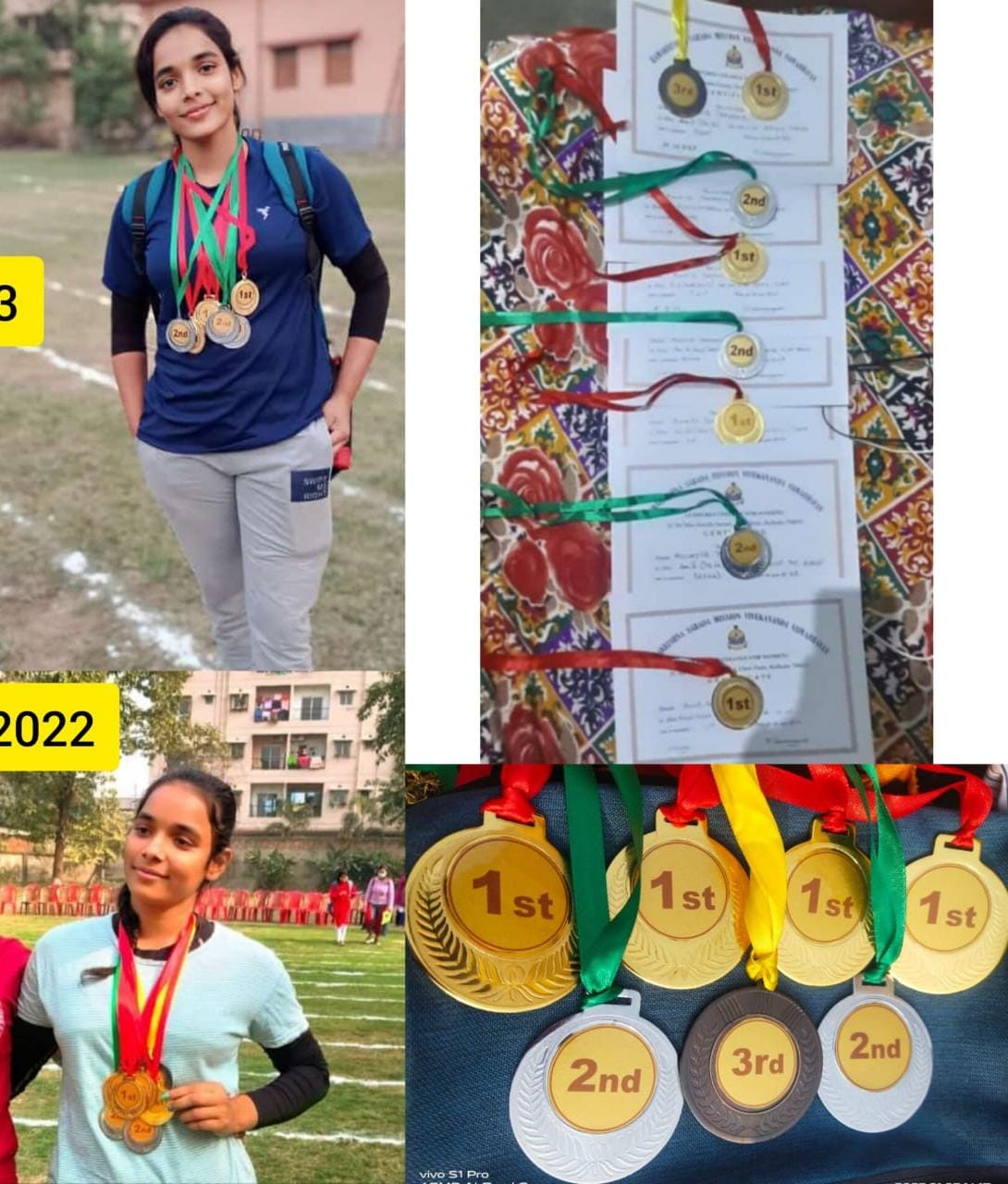
3) Shiuli Santra (batch 2022-2025) secured 2nd and 3rd position in Balance Race and 300 Mts Run respectively in the year 2022.
TESTIMONIALS
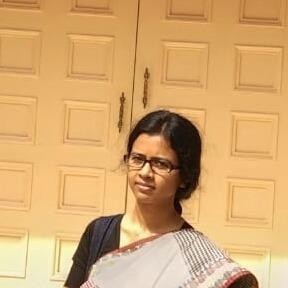
I have enjoyed my college life to the fullest and I am a proud alumnus of the Political Science department of Ramakrishna Sarada Mission Vivekananda Vidyabhavan and owe a lot to my professors. My department is amazing. The professors of my department have a pleasing personality. Their method of teaching was very easy and interesting. They with their profound knowledge provided us with the best possible grounding in study and inspired us to take up higher studies. They have taught us with real love and care. They were very supportive. These beloved mentors taught us the importance of discipline, sincerity, dedication, struggles, friendship, sharing, and commitment as well as the joy of life. They are the great idol of us. They taught us to come out of any bad situation in life through wisdom and patience. They are always with us. Our professors are friends, philosophers, and guides who hold our hand, and open our minds. I am truly grateful to my respected professors always. Student life is a time of learning. We all know that libraries are treasure troves. Both the college and the Seminar library of the department helped us a lot. Every single moment spent in my college is something special that I shall cherish for the rest of my life.
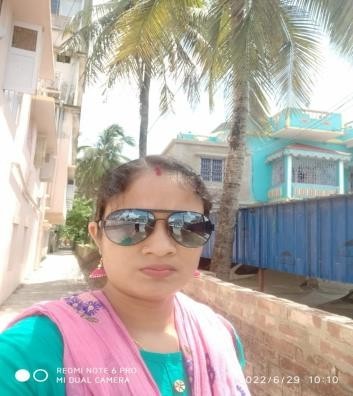
The time that I spent in Ramakrishna Sarada Mission Vivekananda Vidyabhavan College is one of the most remarkable and unforgettable times of my life. Being a student of the Department of Political Science I am lucky to get the chance to enjoy my golden time at this institution. This college has given me a new environment from where I learned to face new challenges. I cannot forget the relationship that formed with the teachers of my Department as well as with the Matajis. Our teachers helped a lot to prepare me with the finest academic platform to turn dreams into realities. They have helped me to make the right decisions in life and to build my confidence. Till now I remember the moments spent in the Hostel. One of the best things of three years in my college life was when I got quality time with my friends and teachers and learning experience. The last days of my college were the most sorrowful knowing that I would be departing my friends, the campus, and teachers, and completely leaving behind a part of life.
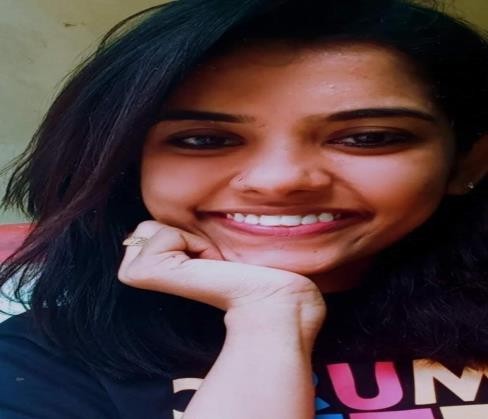
I spent the golden moment of my life at Ramakrishna Sarada Mission Vivekananda Vidyabhaban.I will remember the love I received at Ramakrishna Sarada Mission Vivekananda Vidyabhaban along with the curriculum-based education. I am a student of Political Science, and I have always received a cooperative attitude from every teacher in the department, they have always helped us in every way. Needless to say, I have always received help from every respected Mataji in the college. Our college library is very good, from where we always get all the help related to the curriculum. Besides, the pleasant environment of my college and the spiritual atmosphere attract me even today. The knowledge I gained from Ramakrishna Sarada Mission Vivekananda Vidyabhavan, I will try to remember it forever, and I will always have respect for all the respected Matajis, all the teachers, and all the people of my college.
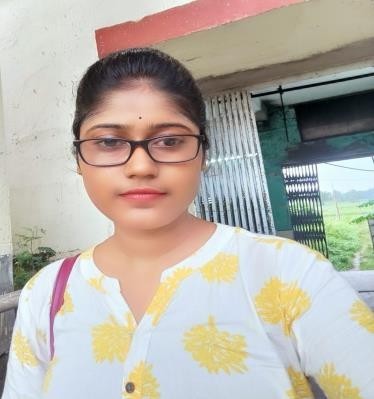
I spent three years studying at RKSMVV in the Department of Political Science and this was an unforgettable period in my life. The disciplined college life helped me on the way. Every Teacher here taught me various subjects with love and encouraged me to pursue higher studies. They continued to help me to improve my skills and guided me. I am proud of my college and grateful for the efforts of the honorable faculty members who allowed me to define me. I believe that the meaning of discipline and commitment in life that I’ve learned from my beloved teachers as well as from the Matajis of our college must make me to be more responsible for achieving my goals in the future.
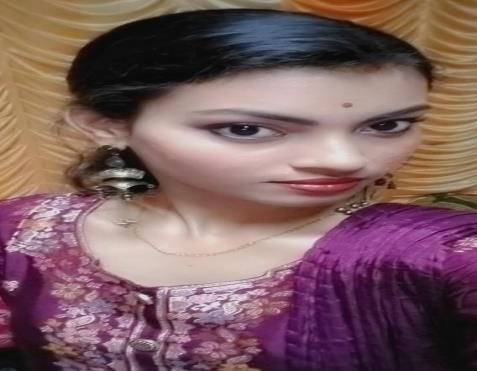
I am very proud to be a part of the Political Science Department of RKSMVV. I considered pursuing Political Science honours from an institution like this was one of the best decisions of my life. The very supportive faculty helped me to enhance my skills. Political science became my love because of my professors. They always inspired me to never give up in life and helped me to overcome difficult situations. That’s why I believe those three years were the golden moments of my life.
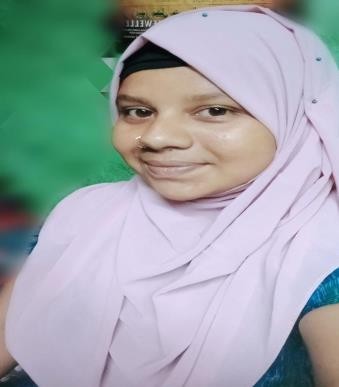
The Department of Political Science at RKSMVV will always be an integral part of my life. The professors have been instrumental in nurturing in me an ability to think and write critically and understand and derive the embedded meaning of the text on my own. The education, discipline, and maturity that it has instilled in me, always helped me to overcome both personal and professional challenges. I have imbibed the virtues of discipline, regularity, hard work, and humility here, which helped me immensely to stay hungry to learn, work toward my goals, and yet keep my humanity intact in my journey.

My experience at RKSMVV has been wonderful. The environment of our college is different from other college. The environment provided more positive things. College life is completely different from school life. It gives us more exposure and also makes us more confident. Our teachers act more like friends in college, whereas in school they’re like our mentors. Most importantly, college life gives us various challenges than our school life. For me, RKSMVV is the best college for women I have ever seen.

I had a great time in my college days at RKSMVV. The college is so pleasant and beautiful. I ranked First Class Second rank (batch 2020-2023) in the BA final examination under WBSU from this college. Being a student of the Political Science department at this college I feel blessed. Teachers are very cooperative and motherly. I have learned a lot of things not only from my honours course but also from the other activities like Value Education class, Yoga, Webinar, value added course, Spoken English, computer, seminar, etc. Above all I feel that the rules and regulations of our college helped me to be punctual, and it will also help to achieve the goals in our life.

I, Bandini Chakraborty, an alumni of Ramakrishna Sarada Mission Vivekanand Vidyabhavan (batch 2020-2023) take great pleasure in expressing my gratitude towards the management, faculties, and all staff of the college. I cherish the moments spent under the guidance of eminent faculty and my dear friends. I ranked First Class 6th in the BA final semester at WBSU. I would always recommend the college for pursuing graduation in Political Science. I express my heartfelt thanks to the entire College for helping me shape my career. I am so happy to be a part of a college that feels like a family.

I am a proud alumnus of the Political Science department of Ramakrishna Sarada Mission Vivekananda Vidyabhavan and owe a lot to my professors. Political science became my love because of my professors. They with their insightful knowledge provided us with the best resources which helped me to achieve First Class 10th Rank in the BA final semester (batch 2020-2023) at WBSU and consequently, I got the chance to pursue a Master’s Degree in the Hooghly Mohasin College, West Bengal. These supportive and beloved mentors taught us the importance of discipline, sincerity, dedication, and commitment in
our lives. I am truly grateful to my respected professors. The college as well as the Seminar library of our department helped us a lot. Every moment spent in my college is something special and I cherish the moments spent with my dear friends in the department.